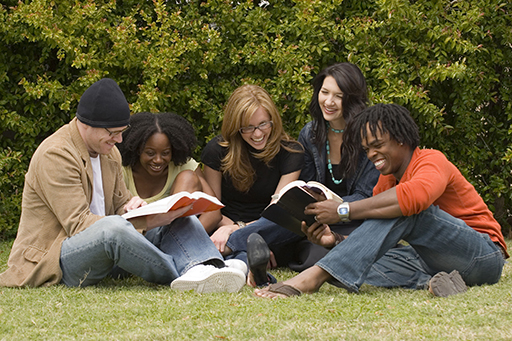3 Learning together
When students get together, whether face-to-face or online, the conversation often includes sharing understanding and experiences about learning. Indeed, one of the most effective ways of applying your new knowledge is to start to have these discussions with other students; sharing your thoughts and ideas with other people can be fun!

In addition to helping individuals become successful independent learners, higher educational institutions want to support peer-to-peer learning. Appropriate group work can help members of the group discover alternative points of view and facilitate a deeper understanding of the task or topic at hand. Furthermore, effective collaboration is a key employability skill. As such, some courses ask students to work together in a range of tasks that are either non-assessed study tasks or activities that are part of the course’s formal assessment.
Participating and working on such tasks, in an open and honest manner, helps you to feel part of a ‘learning community’ and can help you to build links with other students, whether in your tutor group, course or the wider university.
However, it is important that all individuals are aware of the limits associated with a collaborative task; that is, to understand when collaboration steps over the boundary into collusion.
